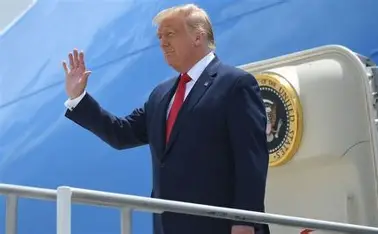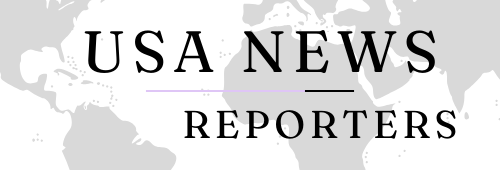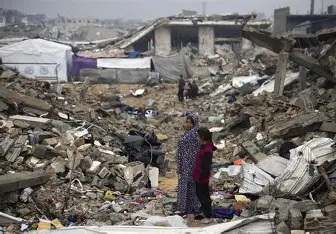President Trump’s Message to Africans – Fix Your Country and Stop Flooding the USA

In an age where global migration has become a defining issue, Africa’s persistent struggle to harness its vast resources and build a sustainable, thriving economy highlights the deep-rooted consequences of political instability, corruption, and decades of poor leadership. While the continent boasts immense natural wealth and an energetic, youthful population, mismanagement and self-serving governance have continued to hinder meaningful progress. U.S. President Donald Trump’s recent remarks about Africa and its challenges have stirred controversy, yet beneath the bluntness of his words lies an undeniable truth—Africa must take responsibility for its own development instead of seeking refuge in foreign lands.
Trump’s message, though provocative, carries a critical and sobering reality: the culture of mass exodus in pursuit of better opportunities abroad is not a viable long-term solution. The long-standing trend of fleeing Africa’s economic stagnation, political turbulence, and institutional inefficiencies to seek stability in the United States, Europe, and other developed nations has perpetuated a cycle of dependency rather than fostering self-sufficiency. The failure to fully capitalize on Africa’s abundant resources is not a result of a lack of foreign aid or external intervention; rather, it is a direct consequence of internal mismanagement, weak governance, and an unwillingness to address systemic problems at their core.
The Struggles of the African Diaspora
The African diaspora has long been shaped by the relentless pursuit of a better life, with countless individuals embarking on treacherous journeys across deserts and oceans to reach countries that promise security, prosperity, and opportunities absent in their homelands. The root causes of this mass migration are deeply entrenched—systemic corruption, crumbling infrastructure, failing education systems, inadequate healthcare, and widespread unemployment. For many Africans, the dream of a stable and fulfilling life seems increasingly unattainable within their own borders, pushing them toward distant lands in search of hope.
Yet, while the desire for a brighter future is understandable, the exodus reveals a deeper and more troubling reality. Africa is not a barren land devoid of resources—it is, in fact, one of the richest continents in terms of natural wealth. From vast mineral deposits to fertile agricultural lands, from a rapidly growing population to immense technological potential, Africa possesses all the necessary ingredients for self-sufficiency and economic transformation. However, these resources remain largely untapped, mismanaged, or outright stolen, often by corrupt elites and foreign entities that prioritize profit over the welfare of local populations.
The irony is stark. While millions flee in search of greener pastures, Africa continues to lose the very talent and energy it needs to drive progress. The departure of skilled professionals, ambitious entrepreneurs, and young innovators weakens the continent’s ability to develop industries, strengthen institutions, and create sustainable economic growth. Instead of harnessing its human capital to build a future rooted in self-reliance, Africa is stuck in a cycle of dependency, where foreign interventions and external aid often dictate its trajectory.
This mass migration is not just a reflection of individual struggles but a symptom of a broader failure—one that lies in governance, leadership, and long-term vision. The belief that success can only be found abroad has fueled a mindset that undermines the potential of the continent itself. Those who leave often do so with heavy hearts, knowing they are abandoning a homeland that, with the right policies and leadership, could offer the very opportunities they seek elsewhere.
For Africa to break free from this cycle, there must be a radical shift in how its resources—both natural and human—are managed. Investment in infrastructure, education, and innovation must take precedence over political greed and short-term gains. Governments must create environments where businesses can thrive, where young people see a future in their homeland, and where talent is nurtured rather than exported.
The future of Africa does not rest in the hands of those who leave but in the determination of those who stay and fight to transform it. Until the continent takes full control of its destiny, the struggle of the African diaspora will remain a painful reminder of what could have been—and what still has the potential to be.
Africa’s Natural Resources and Untapped Potential
Africa is endowed with an abundance of natural resources, boasting some of the world’s most valuable commodities, including diamonds, gold, oil, and vast mineral deposits. These resources, if properly managed, could serve as a foundation for economic prosperity and sustainable development. Yet, despite this immense wealth, millions of Africans continue to live in poverty, trapped in economic hardship with little access to basic necessities such as clean water, healthcare, and quality education. The paradox of a resource-rich but economically struggling continent raises a fundamental question: Why has Africa failed to harness its wealth for the benefit of its people? The answer lies in decades of poor governance, systemic corruption, and a leadership structure that prioritizes personal enrichment over national development.
For many African nations, the failure to translate resource wealth into economic prosperity is a direct consequence of political instability and mismanagement. Instead of directing revenues from natural resources into infrastructure, healthcare, and education, many governments have allowed corruption to drain public funds, leaving essential sectors underfunded and dysfunctional. The wealth generated from Africa’s vast reserves of oil, diamonds, and minerals has too often found its way into the private accounts of a corrupt elite, while the majority of the population remains marginalized. Leaders who are entrusted with the responsibility of guiding their nations toward development frequently choose self-preservation over progress, perpetuating a cycle where power is maintained through suppression rather than service.
The Leadership Crisis in Africa
The leadership crisis in Africa is at the heart of this systemic failure. In many countries, those in power see governance as an opportunity for personal gain rather than a duty to uplift their citizens. Political leaders embezzle public funds, business moguls exploit workers with little regard for fair wages or labor rights, and government officials divert resources meant for public welfare into private hands. These actions have created a culture of impunity, where accountability is almost nonexistent, and corruption is deeply entrenched in the fabric of governance.
The stark contrast between Africa’s elite and the general population is a testament to this leadership failure. Many African leaders and high-ranking officials live in extravagant luxury, sending their children to prestigious schools abroad, seeking medical care in world-class hospitals overseas, and driving expensive cars that symbolize their wealth. Meanwhile, the ordinary citizens they are supposed to serve endure overcrowded schools with inadequate learning materials, crumbling roads that hinder economic activities, and hospitals that lack even the most basic medical supplies. The glaring inequality between the ruling class and the struggling masses has fueled widespread discontent, yet those in power remain largely indifferent, protected by the very systems they have built to maintain their grip on authority.
Despite these challenges, Africa is not devoid of competent and visionary leaders. There are individuals dedicated to change, fighting against corruption, and advocating for economic and social reforms. However, their voices are often drowned out by a political elite that resists change to preserve its own interests. Those who dare to challenge the status quo are frequently met with intimidation, exile, or even assassination, further entrenching a culture of fear that stifles progress.
For Africa to truly unlock its potential, there must be a fundamental shift in leadership and governance. Transparency, accountability, and a commitment to genuine development must replace the entrenched practices of corruption and self-serving politics. Public funds must be redirected toward initiatives that empower the people—improving education, modernizing healthcare systems, investing in infrastructure, and fostering an environment where businesses and innovation can thrive. Moreover, African nations must take ownership of their resources, ensuring that the benefits of natural wealth serve the people rather than being siphoned away by foreign corporations or corrupt officials.
The future of Africa does not lie in the hands of a select few but in the collective determination of its people to demand better governance. As long as corruption remains unchecked and leadership is defined by personal gain rather than national service, Africa will continue to struggle, despite the immense potential it holds. Change will only come when the people refuse to accept mediocrity in leadership and insist on a new era of accountability, integrity, and progress.
The Necessity of Accountability and The Importance of Fostering Homegrown Solutions
The path to Africa’s transformation begins with a collective demand for accountability. For too long, citizens have endured poor governance, weak institutions, and unfulfilled promises from leaders who prioritize personal interests over national progress. This tolerance for mediocrity has allowed corruption and inefficiency to thrive, perpetuating a system in which public funds are mismanaged, infrastructure remains underdeveloped, and essential services such as healthcare and education suffer from chronic neglect. It is imperative that the people of Africa shift from passive acceptance to active engagement, insisting on leaders who deliver tangible results and uphold the principles of good governance.
A thriving society is built on the foundation of hard work, innovation, and self-reliance. The world’s most successful nations did not achieve prosperity by depending on foreign aid or looking outward for solutions. Instead, they cultivated a culture of diligence, creativity, and long-term vision, focusing on internal growth rather than external reliance. Africa must adopt this same mindset, recognizing that its future lies not in the hands of international donors or foreign governments but within the determination and resilience of its people. This requires a shift away from the dependency mentality that has long plagued the continent, replacing it with a strong commitment to homegrown solutions and self-sufficiency.
One of the most significant steps toward self-reliance is fostering a vibrant entrepreneurial ecosystem. Africa is home to some of the most innovative minds, young entrepreneurs who are creating groundbreaking solutions in technology, agriculture, healthcare, and renewable energy. However, despite their potential, many of these visionaries struggle to succeed due to systemic barriers such as inadequate infrastructure, bureaucratic red tape, and the high cost of doing business. Governments must take deliberate steps to support local businesses by providing access to funding, improving regulations, and eliminating the corruption that stifles innovation. When entrepreneurs are given the space and resources to thrive, they create jobs, boost economic growth, and drive sustainable development from within.
Beyond entrepreneurship, investment in education is crucial. No nation has ever achieved sustained development without prioritizing education as a tool for empowerment. Africa’s young population presents a massive opportunity for growth, but without proper education and skill development, this demographic advantage can quickly become a liability. Governments must allocate resources to build and improve schools, train educators, and modernize curriculums that equip students with the skills needed for a competitive global economy. Equally important is the promotion of vocational training, ensuring that young Africans are not only academically educated but also equipped with practical skills that allow them to contribute meaningfully to their societies.
Transparency and good governance must also become non-negotiable. The entrenched culture of corruption in many African governments has drained resources meant for development, leaving citizens frustrated and disillusioned. Leaders who mismanage public funds should be held accountable, and strong institutions must be established to ensure that national wealth is used for the collective good rather than personal enrichment. Anti-corruption agencies must be empowered with the autonomy to investigate and prosecute those who abuse their positions, regardless of their political or economic status.
Another key factor in Africa’s progress is ensuring that wealth generated from natural resources benefits the people rather than being monopolized by elites or foreign entities. Africa possesses immense natural wealth, yet much of it is exported in raw form, creating little value for local economies. Instead of allowing foreign corporations to extract resources and export them with minimal benefit to host nations, African governments must implement policies that encourage local processing, manufacturing, and industrialization. By developing industries that add value to raw materials, Africa can create jobs, generate revenue, and build a more diversified and resilient economy.
The responsibility for Africa’s future does not rest solely on governments. Civil society, private sector leaders, and everyday citizens all have a role to play in shaping the continent’s destiny. Communities must organize, advocate for their rights, and push for reforms that drive national progress. Media outlets must continue to expose corruption and inefficiencies, ensuring that leaders are held accountable. Youth-led movements should harness technology and digital platforms to demand transparency and drive civic engagement. By working together, Africans can create an environment where progress is not just an aspiration but a reality.
Ultimately, Africa’s future depends on its ability to break free from the cycle of poor leadership, dependency, and stagnation. The solutions to the continent’s challenges lie within, and it is up to Africans to demand better governance, invest in their own economies, and embrace a vision of self-reliance. Only through collective effort, accountability, and a commitment to innovation can Africa move toward a future defined by prosperity, stability, and sustainable growth.
No More Escaping to Foreign Lands
The call for Africa to address its challenges internally rather than seeking solutions abroad has never been more urgent. The reality is that no nation or continent has ever developed by relying on external intervention. Africa must recognize that the responsibility for its transformation lies within its borders. Former U.S. President Donald Trump’s remarks, though controversial, highlight a fundamental truth—Africa cannot continue to look to the United States, Europe, or any other foreign power to solve its problems. The pattern of migration, foreign dependence, and waiting for international aid must end. It is time for Africa to harness its own potential and chart a course toward sustainable progress.
For too long, African nations have been caught in cycles of instability, corruption, and economic stagnation, prompting many of their citizens to flee in search of better opportunities elsewhere. However, mass migration is not a sustainable solution. The people who leave in search of prosperity abroad are often the same individuals who have the skills, knowledge, and ambition to drive meaningful change at home. When Africa’s brightest minds seek refuge elsewhere, they leave behind a continent in need of their innovation, leadership, and vision. Instead of building foreign economies, these individuals should be empowered to contribute to their home countries, creating opportunities that benefit future generations.
The transformation of Africa will not happen overnight, nor will it be easy. It will require tough decisions, bold leadership, and an unwavering commitment to reform. Corruption must be eradicated, institutions must be strengthened, and economic policies must be restructured to create an environment that encourages investment, entrepreneurship, and industrialization. Instead of allowing natural resources to be exploited by foreign interests, African nations must take control of their wealth, ensuring that it benefits their people rather than a select few.
A Call to Action for Africa’s Youth
The responsibility for this change lies heavily on the shoulders of Africa’s youth. With over 60% of the continent’s population under the age of 25, young people represent the driving force behind Africa’s future. They are the entrepreneurs, engineers, scientists, and policymakers who will shape the continent’s destiny. However, they must be willing to take charge and demand more from their governments. Change will not come from waiting—it will only come from active participation, innovation, and a relentless pursuit of progress.
African youth must embrace entrepreneurship and innovation rather than depending on government jobs or foreign employment. They must create solutions tailored to the unique challenges of their communities, leveraging technology, agriculture, and manufacturing to build economies that are resilient and self-sufficient. Governments, in turn, must foster an environment that supports young entrepreneurs by providing access to capital, infrastructure, and policies that encourage business growth.
Education must also be prioritized. Africa’s young people must be equipped with the knowledge and skills needed to compete in a global economy. A focus on science, technology, engineering, and mathematics (STEM), as well as vocational training, will empower them to create sustainable solutions that drive development. Moreover, they must challenge outdated political systems that stifle progress, advocating for leaders who are committed to transparency, economic reform, and genuine national development.
In conclusion, while Trump’s message may be uncomfortable, it is a necessary wake-up call. Africa’s future will not be determined by the decisions of foreign nations but by the choices made by its own people. The time for dependency, complacency, and seeking external solutions is over. It is time for Africa to take full responsibility for its own progress, to demand better leadership, and to invest in the innovation and resilience of its youth.
The continent has everything it needs to thrive—natural resources, a youthful population, and boundless potential. What is required now is the collective will to rise above challenges, embrace self-reliance, and reclaim Africa’s place on the global stage. The era of waiting for salvation from outside forces is over. The future of Africa begins with its people, and the time to act is now.
My Take – Wake Up and Take Back Africa!
Africa is home to some of the world’s richest lands, abundant resources, and a wealth of brilliant minds.
Yet, despite this vast potential, many African nations remain impoverished and poorly managed, primarily because we refuse to hold our leaders accountable.
Trump may be blunt, but he is not the enemy. He is telling the uncomfortable truth that too many shy away from.
If you’re tired of enduring suffering, it’s time to stop complaining and start taking action.
No more running to foreign shores.
No more begging for help.
No more excuses.
It’s time to take responsibility and fix our own nations!










